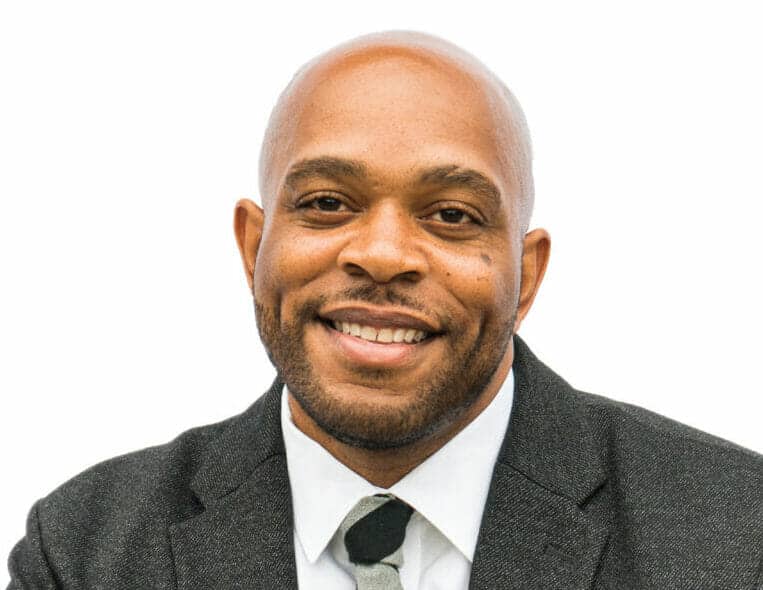Wave-Maker Spotlight: Ajani Jackson, Adult, Child and Adolescent Psychiatrist
by Amanda Medress

In 1990, Ajani Jackson started as a sixth grader in the 1st Wave of the Making Waves Education Program in Richmond. Today, Ajani is an Adult, Child and Adolescent Psychiatrist in Sacramento and serves on the Making Waves Foundation Board. We sat down with Ajani to discuss his Making Waves experience and his career in medicine.
How did your family find out about Making Waves? What was your Making Waves experience like?
My family was introduced to Making Waves Education Program when I was attending Adams Middle School. A close friend of mine was attending and he recommended me. Making Waves selected a group of students from Adams to interview, and I was selected and accepted.
What I do remember was that there were a lot of young kids in a small space. We were introduced to a lot of new ways of learning and involved in a lot of extracurricular activities. That was just the first year where we started to develop like a family. We developed intimate relationships, noticed commonalities, and all connected—Making Waves made it a fun journey. For high school I went to Salesian College Prep in Richmond, then I went to San Diego State for two years before transferring to Xavier University.
What was your college experience like?
My major was chemistry and minor was biology. I choose medicine after my second year at San Diego State. My mom developed end-stage renal disease when I was in college because she couldn’t afford her medication for high blood pressure. That’s how I became more interested in medicine.
My mom saw a documentary on Xavier and how it was #1 in placing African Americans in med school. Transferring was one of the best decisions I could have made. At Xavier, everyone was on the same track about the pursuit of medicine.
How was medical school?
Medicine was ten times the amount of work. I don’t think you can ever prepare. As expected, it’s extremely stressful, an emotional rollercoaster, and makes you challenge yourself to the extreme. There’s a lot of sacrifice involved, with a borderline obsession in order to succeed. I went to Morehouse School of Medicine, which was very small and supportive. Everyone built each other up—it was similar to Making Waves, in terms of the level of support.
I chose psychiatry, because you could choose to specialize in child and adolescent psychiatry, and I figured I could get more bang for my buck and do both adult, adolescent and child psychiatry. There’s more flexibility—you can work with kids and families, be a teacher, or go into administration.
What do you do now?
Now I am a Chief Psychiatrist (A) and Medical Director at the California State Prison. In a typical day I do a lot of administrative and clinical work, initial assessments on patients, and develop policies for the institution to address mental health issues. I also work in a community clinic for the homeless, as a child psychiatrist, where I evaluate homeless children and provide medication management and supportive therapeutic services.
Looking forward, I have considered opening a private practice for families—one of my many long-term goals. I’d also like to continue to grow regarding leadership, in the administrative role I have right now.
How has your Making Waves experience impacted your trajectory?
There were a lot of challenges regarding my mother’s health, to the point where I almost dropped out of school. Making Waves said, “we’re here to help you however we can—you can’t drop out.” Hearing that, and knowing I had that buffer—you don’t get a lot of that in your families. The personal relationships, social, and financial support from Making Waves provided me more opportunity for growth to fully explore my potential and be exposed to environments that nourished my academic endeavors.
Why did you decide to join the Making Waves Foundation Board?
Making Waves has played a large contribution to my experiences and success. I like to give back to my communities. Richmond has played an important role in my life. Especially being a psychiatrist and a 1st Waver, I can provide a perspective on how decisions might impact the kids we’re trying to serve.
What advice do you have for current and future Wave-Makers?
Try to choose a career path you can enjoy, not just a job, something you have a passion for. If you look at it that way there’s always room for growth. Challenges and obstacles are a part of the story, but when you utilize the drive that fuels persistence, you will be able to overcome the resistance on the other end.
